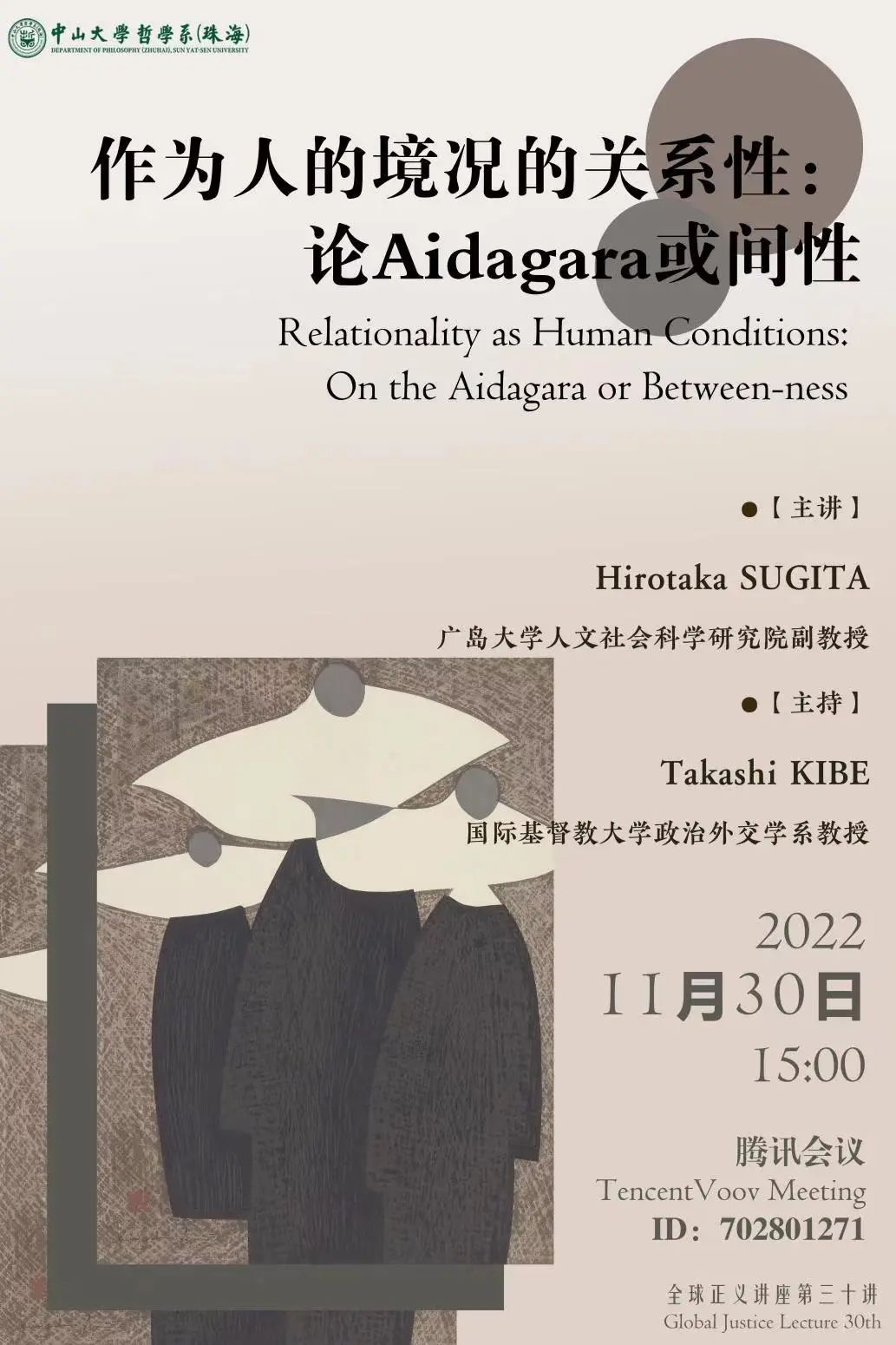全球正义讲座第三十讲:作为人的境况的关系性:论Aidagara或间性
作为人的境况的关系性:论Aidagara或间性

Global Justice Lecture (30th)
Organizer
Department of Philosophy (Zhuhai)
Sun Yat-sen University
Topic
Relationality as Human Conditions:
On the Aidagara or Between-ness (Virtual)
Speaker
Hirotaka SUGITA
Associate Professor, Graduate School of Humanities and Social Sciences, Hiroshima University
Moderator
Takashi KIBE
Professor, Department of Politics and International Studies, International Christian University
Time
Nov. 30. 2022 15:00
Tencent VOOV ID
702-801-271
Abstract
The ethical concept of aidagara (‘betweenness’) by Watsuji Tetsuro, a Kyoto School philosopher, highlights that human beings are located precisely at “in-between”, that is, in human social interaction. While offering a non-dualistic conception of self-transformation in community, Watsuji has been criticized for his complicity in World War II, which erased the individual and tilted toward totalitarianism. This chapter focuses on Tanabe Hajime, Nishida Kitaro's successor and most elaborate critic. Tanabe argued that Nishida's thought could fall into totalitarianism by being oriented toward the whole, and established his own “the logic of species” that proposed a dialectical relationship between the individual and the universal through absolute mediation. Moreover, in Philosophy as Metanoethics, written at the end of World War II and published in 1946, Tanabe moved beyond the position of "self-power" (jiriki), characteristics of the philosophy of Zen adopted by Nishida, and more toward the standpoint of self-transformative "Other-power" (tariki). His metaphysical as well as existential principle of encounter with the Other, in which the Other-power or absolute mediation is passive interruption of the conscious rational subject, will provide us a new way of understanding aidagara or relationality against totalitarianism like Hanna Arendt suggests in-betweenness with interests as the human conditions.
全球正义讲座第三十讲
主办
中山大学哲学系(珠海)
主题
作为人的境况的关系性:
论Aidagara或间性
主讲
Hirotaka SUGITA
广岛大学人文社会科学研究院副教授
主持
Takashi KIBE
国际基督教大学政治与国际研究学院教授
时间
2022年11月30日15:00
腾讯会议ID
702-801-271
摘要
京都学派哲学家和辻哲郎提出了伦理上的aidagara(间性)概念,强调人类恰好处于“居间”位置,亦即处于人的社会交互之中。
来源|哲珠新媒体
文稿|马钟鸿
编辑|于清扬
初审|黄丹萍
审核|卢 毅
审核发布|屈琼斐


